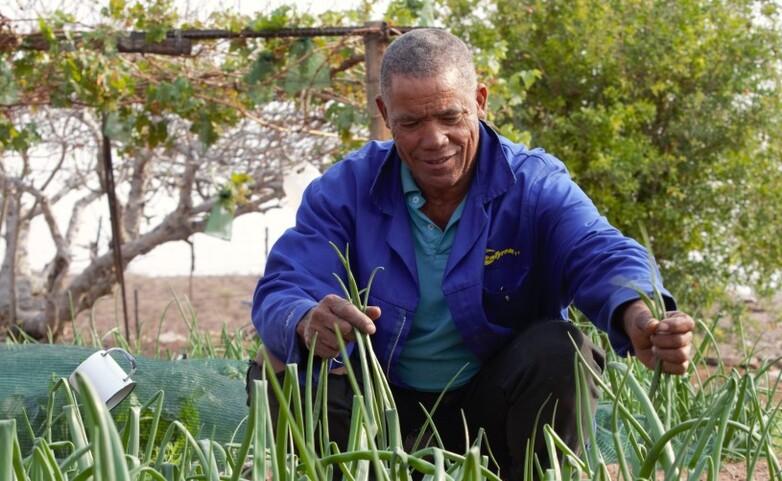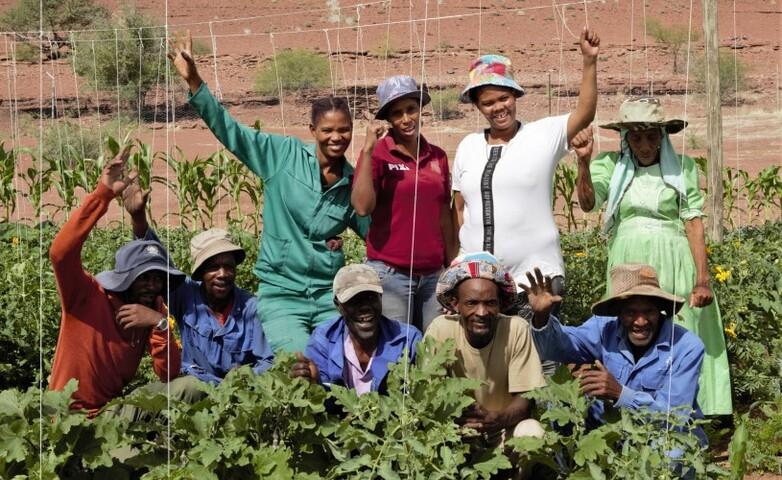Content
The Namibian agricultural and food industry continues to play a decisive role in the country's economic development. However, especially in communal land areas, agricultural production is largely geared towards the self-sufficiency of producers and their families. Their challenges include low harvests, high dependency on rainfall, limited water access, high production losses and poor pasture management practices.
The regular droughts in recent years and the COVID-19 pandemic have made it clear that small-scale producers and agricultural businesses need to become more resilient to external influences. This is the only way to secure food supplies in rural and urban areas in the long term.
Objective
The Namibian agricultural and food sector is more resilient to the climate and other external influences.
Approach
The project cooperates with the Namibian Ministry of Agriculture, Water and Land Reform (MAWLR) and focuses on four areas of action in which it offers training and advisory services:
(1) producing and propagating seed,
(2) producing in a climate-adapted manner,
(3) producing, processing and marketing, and
(4) securing food and nutrition.
The project is aimed at producer organisations, agricultural cooperatives, small-scale producers and agricultural entrepreneurs, as well as schools in communal land areas. There is a focus on women and young people.
The project also works closely with political decision-makers and partners from the fields of academia, the financial and private sectors, including the Agricultural Bank of Namibia, as well as civil society, for example with the Alliance for Food and Nutrition Security in Namibia.
Last udate: December 2023
